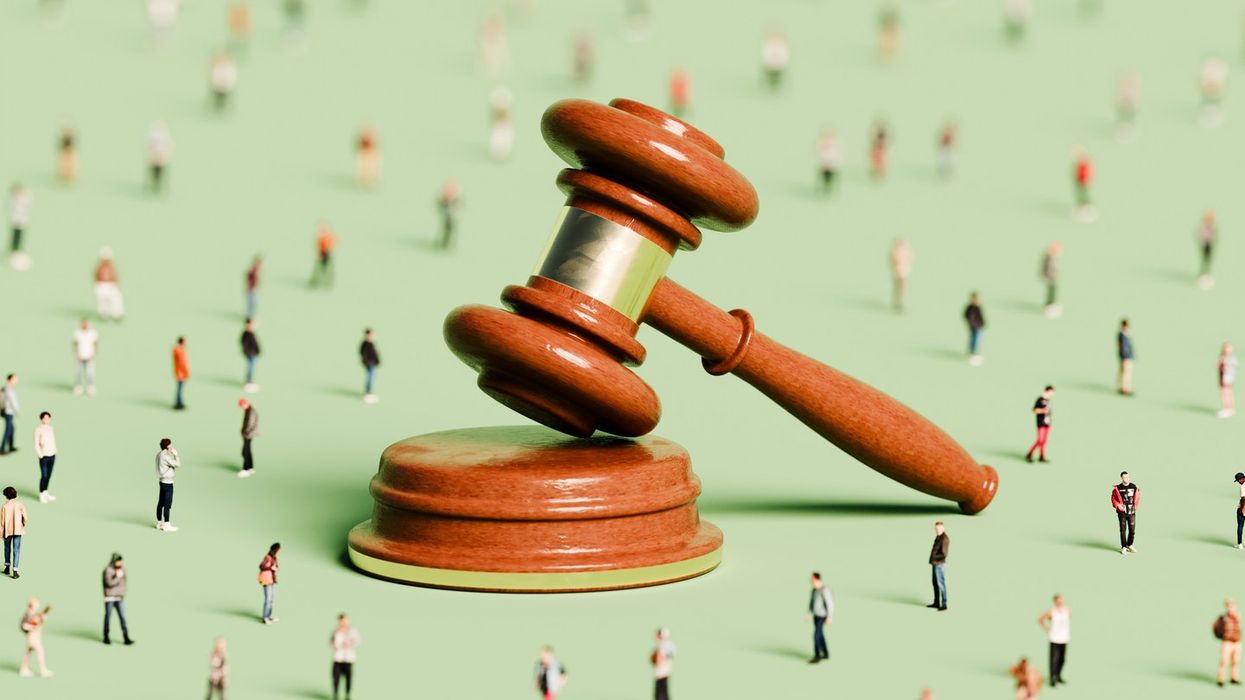In 2020, I worked for Protect Democracy. We fought in court. We built coalitions. We moved resources. We strategized across party lines. And when it mattered most, we won.
TIME called the collective effort “the secret bipartisan campaign that saved the 2020 election.”
We didn’t achieve that with white papers or blog posts. We did it with action — with law, lobbying, and strategic communications — executed by a massive coalition led by people like Ian Bassin, Michael Podhorzer, and Norman Eisen. We went on offense, and we delivered.
Five years later, Donald Trump is back in power. The danger is worse, the stakes are higher, and yet the very organizations that were built to defend democracy have retreated to the safety of commentary. They churn out reports no one reads, write op-eds that continually restate the problem, and host webinars and conferences that only reach the already converted.
A recent example was the American Democracy Summit, where the panel on mass mobilizations failed to include anyone from 50501, Indivisible, or American Opposition. That’s a bit like having a panel on medicine without including doctors. And they couldn’t claim ignorance — we pointed it out before the event began.
Across the political non-profit sector, there’s been a wholesale retreat from risk. Groups that raised hundreds of millions promising to “defend democracy” are now more focused on defending their reputations, their 501(c)(3) statuses, and their donor relationships than on actually winning this fight.
The result? The legal campaign against authoritarianism has been left to smaller, scrappier outfits like Democracy Forward, which has stepped in to take on the lawsuits and challenges that others won’t touch. That’s not because Democracy Forward has more resources — it’s because they still have the will to win.
The rest of the sector has fallen into a dangerous cycle: Identify a problem, brand the problem, fundraise off the problem, and then… Represent the problem. Become the official “voice” of the problem. Attend conferences about the problem. But never — God forbid — actually solve the problem, because then the problem (and the funding it generates) would disappear.
This is the non-profit industrial complex at work: An ecosystem of organizations that rely on perpetual crises for their survival. They’ve learned that a crisis you manage is more lucrative than a crisis you end. And so the work becomes self-referential, endlessly “raising awareness” while our democracy dies.
We do not need more awareness. We are drowning in awareness. Everyone understands what’s happening.
We need execution. We need legal victories. We need legislative wins. We need organized pressure campaigns that make power pay a price for abuse.
When I look at the non-profit sector now, I see more career management than crisis management. I see strategists who can’t bring themselves to call Trump a fascist because they’re afraid it might alienate certain segments of their donor base.
These organizations love to say, “We’re playing the long game.” But the long game is meaningless if you lose the short one. There’s no long game under a consolidated autocracy. The people who will shutter your offices, revoke your tax exemptions, and criminalize your work are already in power — and you’re empowering them to end you.
In 2020, we didn’t have the luxury of overthinking the optics. We looked at the scoreboard, realized we were losing, and made bold, coordinated plays that shifted the outcome. We didn’t stop to write think pieces about the moral implications of using every tool available. We just used them.
That spirit is now almost entirely gone from the non-profit sector. In its place is a culture of risk-aversion disguised as prudence. The fear of doing the wrong thing has eclipsed the imperative to do the necessary thing.
While Republicans dismantle the rule of law in real time, the so-called defenders of democracy are trapped in endless “strategy sessions” and “war games” that never produce actual strikes.
If your organization can’t point to a concrete victory in the last six months, you’re not defending democracy. You’re holding its hand while it dies.
The American people deserve better. This moment demands organizations willing to spend every dollar, every ounce of political capital, and every shred of goodwill to stop authoritarianism in its tracks.
It demands legal warfare, mass mobilization, civil disobedience, and direct confrontation; People willing to lose their tax exemptions to deliver a result.
If you’re a leader in one of these organizations, you have a choice: You can continue to manage your brand while the country collapses, or you can risk your brand to try to save our democracy.
You can keep representing the problem, or you can actually try to solve it.
History will not remember you for the caution you showed in protecting your non-profit’s reputation. It will, however, remember whether you stood between this country and those attacking it or whether you allowed them to pass.
The time for opinion pieces and blog posts is over. May this be the last of those.
The time for action is now.
Carlos Álvarez-Aranyos is the founder of American Opposition, a non-connected political action committee established to counter the rise of fascism in the United States. The organization serves as a strategic communications and community engagement hub for the opposition movement. He oversaw strategic communications efforts for Protect Democracy in 2020 and was the co-founder and chief communications officer for The American Sunlight Project in 2024.




















